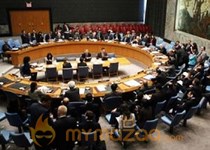As India Tuesday gained a two-year term on the Security Council after a gap of 19 years, it vowed to step up its quest for a permanent seat on the powerful decision making body of the United Nations.
While India’s election for a non-permanent seat on the 15-member body was a foregone conclusion after Kazakhstan pulled out from the race for the Asian seat earlier this year, India got 187 of the 191 votes in the UN General Assembly poll Tuesday. India’s last stint on the Security Council was in 1992.
Soon after India’s election, Indian envoy to the UN Hardeep Singh Puri made it clear that New Delhi would use the two-year stint to build trust and give a sense of confidence to the five permanent members – the United States, Russia, Britain, France and China.
Noting that Brazil, a current member of the Security Council, and South Afria and Germany, which got elected with India, Tuesday were also aspirants for a permanent seat, he said: “Naturally all of us will try to use the time we have to give our partners a sense of confidence and build trust so that they are comfortable with our membership of the Security Council on an extended basis.”
India wanted to bring across to the Council the message that “we bring the voice of one sixth of humanity, and 63 years experience in nation building,” he said. “I think that’s what the United Nations can use.”
As a mainstream country on “issues like human rights and other issues of a traumatic nature,” India would also “pursue these messages and also work towards a more extended longer term”, Puri said.
Puri said Pakistan had also voted for India, and the one vote that Pakistan got was cast by someone else on whose state of mind he did not want to comment.
South Africa and Colombia won the African and Latin American seats respectively for a two-year term on the Council starting Jan 1, 2011, while one of the Western Europe and others Group seat went to Germany. Canada and Portugal are still battling for the fifth seat.
The five new non-permanent council members will replace Austria, Japan, Mexico, Turkey and Uganda, whose terms end on Dec 31. The five members elected last year – Bosnia, Brazil, Gabon, Lebanon and Nigeria – will remain on the council until the end of 2011.







